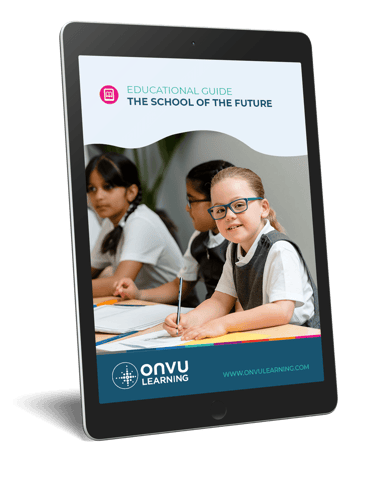- Blogs
- 2 Minute Read


So, 2020 is here! But have the challenges facing schools changed? We’ve been working with our partner schools over the years to improve teaching and learning, and in this blog, we’re using our ongoing conversations with schools to identify the challenges they are facing – and our technology contacts and knowledge to link you with the latest ideas to help you and your school solve them. We hope these education predictions for 2020 and ideas will give you some inspiration on things that can be implemented straight away.
1. Improving Teacher Training
2020 will see the introduction of the Early Career Framework in four pilot areas and the Initial Teacher Training Core Content Framework across the whole of England, while the National Initiative for Schools Heads and Teachers Holistic Advancement rolls out across India. Both countries are aiming to improve teacher quality by providing teachers with access to the latest research-based ideas to use in the classroom.
We’d obviously recommend schools in both countries take a look at our solution that will allow teachers to capture and reflect on real lessons.
2. Fundraising
School funding is the number one issue for many schools, whether state-funded or independent, with many schools looking to fundraising for new buildings or equipment. The good news is that technology is making it easier to raise money, with several organisations offering crowdfunding platforms as well as handing the financial issues.
3. Secondary Teacher Recruitment
There’s a ‘perfect storm’ coming for secondary schools – demographic changes mean that in many countries there are more students turning 11 than in previous years, with fewer people in the right age group to train as teachers. And when you add the expansion of international schools many schools will have real problems recruiting in 2020. Technology can also help schools to recruit better and spend less money– for example state schools in England can now share their jobs for free using the Government’s ‘Teaching Vacancies’ job board.
4. Primary Student Recruitment
Primary schools in many countries face a different challenge, again driven by demographics. There are simply fewer younger potential pupils to go around! Schools that have been oversubscribed for many years will have to revisit how they promote themselves to their communities. An important way of contacting your key target audiences is social media, but and the age group of your prospective parents means that they are likely to be using Instagram or Facebook as their main platform.
5. Delivering Better and More Personal Learning
Delivering the right level and difficulty of learning to individual students has always been a key goal of education, but it has proven hard to balance with teacher workload. But in 2020, technology, and artificial intelligence (AI) in particular, is beginning to make a major difference. This recent case study shows how one college improved exam results in Maths with an AI-enabled self-learning platform.
6. Reducing Teacher Workload
Teacher workload has been seen for many years as a key issue that affects both recruitment and retention of teachers as well as effective classroom teaching. The good news is that the UK Government found that its teachers’ working hours had fallen since 2016. The bad news was that they were still working around 50 hours per week.
One promising way that technology can help is reducing the amount of marking, by replacing it with ‘comparative judgement’ – in which a teacher simply compares two pieces of work in turn rather than having to mark each one from scratch. This case study shows the impact on 14 schools in Oxfordshire.
7. Handling new inspection frameworks
The English school inspection framework changed significantly in 2019, and schools are already poring over the first inspection reports produced by Government inspectorate OFSTED. Key areas that schools now need to demonstrate are improved support for earlier career teachers and a curriculum that is both suitable for the school and effective in how it is delivered. We think video-based reflection is a great way to prepare for OFSTED – we even published a full blog on this topic.

The School of the Future Guide is aimed at helping school leaders and teachers make informed choices when designing the learning environments of the future using existing and upcoming technologies, as they seek to prepare children for the rest of the 21st century – the result is a more efficient and competitive school.
KEEP IN TOUCH WITH ONVU LEARNING AND RECEIVE THE LATEST NEWS ON EDTECH, LESSON OBSERVATION, AND TEACHER TRAINING AND DEVELOPMENT.